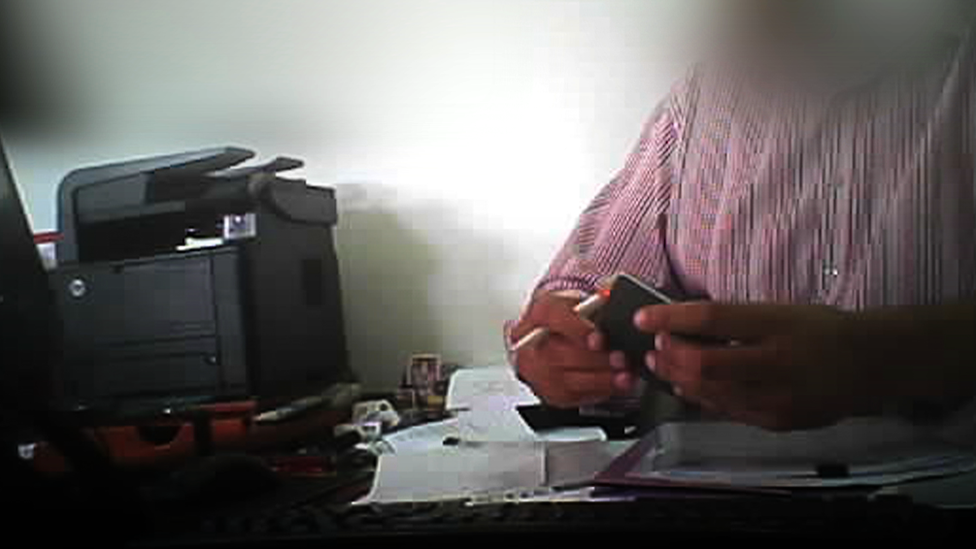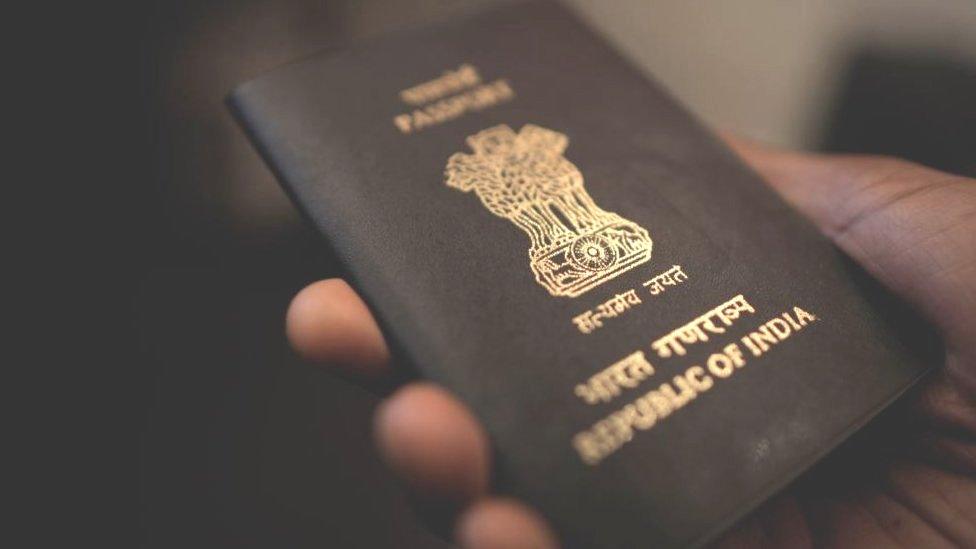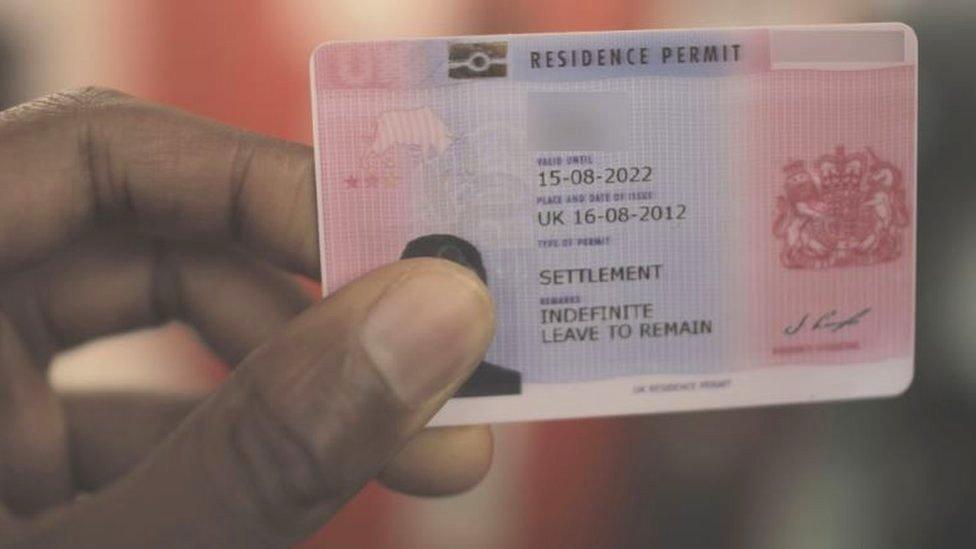Forged IDs: Landlord laws 'fuelling black market'
- Published
Zack Adesina exposes the illegal immigrants conning London's landlords
Legislation aimed at preventing illegal immigrants from renting properties is fuelling a black market in forged IDs, a BBC investigation has found.
Under Right to Rent rules, external introduced last year landlords must check the immigration status of new tenants.
But criminal gangs are helping undocumented immigrants flout the law by them selling fake documents.
A Home Affairs spokesperson said landlords were not expected to be experts in spotting forged documents.
However, David Smith of Anthony Gold Solicitors, who specialises in landlord and tenant law, said this lack of expertise was problematic.
"They (landlords) do not have the knowledge or skills to do the job properly. I've never met a landlord who can tell a valid Liechtenstein passport from a forgery," he told the BBC.

An undercover reporter presented fake documents to letting agents
An undercover reporter for BBC Inside Out London was able to purchase counterfeit passports, as well as National Insurance cards and residence permits from illegal dealers across London.
Using a secret camera the reporter recorded the deals, with fraudsters charging up to £500 for a fake passport. Some documents arrived within 48 hours.
The forged IDs were then presented to letting agents, who were secretly filmed accepting them without question as proof of UK residency status.
Akhbar (not his real name) was previously associated with gangs involved in producing forged paperwork.
He told Inside Out: "In an average week they were selling between six to 10 fake residence permits or passports. In the last few months or so I would say they got even busier."
The Right to Rent rules were introduced across England in February 2016, in an attempt to make it harder for undocumented migrants to secure housing.
Landlords can in theory be sentenced to five years in prison or face an unlimited fine if they are found renting to someone who does not have the right to be in the UK.
The only way to be sure of avoiding penalties is to establish and maintain a "statutory excuse" by checking certain specified documents, including passports, National Insurance cards and residence permits, external.
Home Office figures show 170 fines have been issued to landlords under Right to Rent rules since October 2016.


Analysis: How good are the fakes?
Zack Adesina, BBC London Inside Out
The counterfeit passports I saw and acquired from the ID fraudsters were remarkably convincing at first glance. Professionally bound and sealed, some even feature mock biometric imprints.
They are made with good quality materials and they also pass the touch test, feeling like the real thing. But they don't withstand intense scrutiny. The photos on three appeared too small and the lettering somehow seemed dodgy but then, those selling them know they need not be perfect.
As one fraudster put it: "Don't try to use them at the airport, where they check thoroughly. You will not be able to con a proper immigration officer but they are good enough to fool landlords."

The BBC submitted a Freedom of Information request to ascertain how many landlords had been criminally prosecuted or imprisoned. However, the Home Office failed to respond.
As well as fuelling a black market in counterfeit documents, it has also been claimed the new laws are making it harder for legitimate tenants to access housing, as landlords are fearful of inadvertently providing a home to an illegal immigrant.

The Home Office says landlords are not expected to be experts in spotting forgeries
Saira Grant from the Joint Council for the Welfare of Immigrants said: "A report released in February, backed by the Residential Landlords Association, found that 51% of surveyed landlords said the scheme would make them less likely to consider letting to foreign nationals.
"The survey also disclosed that 41% of landlords were less likely to rent to someone without a British passport."
In a statement, the Home Office said there was no evidence the new rules were causing discrimination.
It said the "simple checks" required under the Right to Rent rules were "developed with the input of the Landlords Consultative Panel", adding that the introduction of biometric residence permits had "further simplified immigration checks".
The full story airs on Inside Out on BBC One HD and BBC One London at 19:30 BST on Monday 16 October.